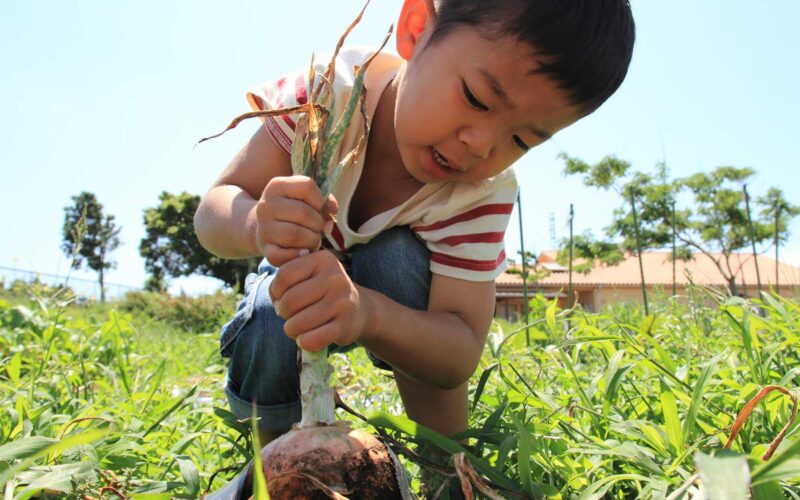Growing Your Garden: Tips for Excellent Onions
April is National Garden Month. At Gills Onions, we grow vegetables on a large scale, but it doesn’t matter if you are planting thousands of acres or one window box. Growing your own food is an amazing thing.
Agriculture brings us back in touch with where our food comes from and how it grows and gives us a sense of accomplishment that you can’t replicate doing anything else. Nurturing a plant and then reaping the delicious rewards deepens our respect for our amazing earth.
So, if you’re considering getting your hands dirty, we’d like to recommend one of our favorite foods — onions!
Onions You Can Plant in Your Garden
The first thing you need to determine before you ever dig into the dirt is which type of onion you should plant. All onions are not created equal. Different onions grow better in different areas and climates.
Onion bulbs grow in correlation with the length of daylight the plant receives. That’s why you’ll hear onions referred to as short-day, long-day, or intermediate. Short-day onions need about 10 hours of daylight. Long-day onions need closer to 15 hours of daylight. Intermediate onions tend to grow well in any climate and are less affected by the length of day.
So, which onions should you plant?
A good rule of thumb is to envision a line drawn across the United States from San Francisco to Washington, D.C. If you live north of this line, you should grow long-day onions. If you live south of this line, try a short-day instead. Anyone can try their hand at a day-neutral bulb.
The Right Way to Plant Onions
It takes about 120 days for an onion to grow. But, when you plant your onions depends largely on the variety of onion you plant.
Short-day onions are typically planted in the late fall and harvested in spring. Long-day onions should be planted in early spring and harvested in the late summer. Day-neutral onions are planted in early spring for colder regions or in the fall for warmer regions.
Planting your onions in a simple planter box is a great way to ensure your bulbs get the proper drainage and makes them easier to harvest. Remember, healthy soil grows healthy onions, so you need to focus on the dirt before you ever put bulbs in the ground.
To ensure your onions have the right pH ranges in the soil and enough nutrients to grow, consider using a formulated raised bed soil from your local nursery or home improvement store. You can also improve the pH of your natural soil by mixing it with a few inches of rich organic matter, aged compost, or other natural fertilizers. Build the soil up high in the planter so your onions have a lot to work with.
With soil in place, you’re ready to plant. Place each onion plant about 1 inch deep in the soil so that the roots are well covered but the plant’s neck (the green part) has room to breathe. Place each onion plant 6 inches apart.
Keep the soil moist as your onions grow. Water your onions as soon as the top inch or so of the planter’s soil feels dry.
The great thing about onions is that you can harvest at any time. Like we said before, you’ll want to wait about 120 days for a fully mature onion, but you can harvest onions when they are small as soon as a few weeks after planting. You’ve seen these onions in the store before — scallions.
But if you dream of large juicy onions, watch the tops of your onion plant. When the tops begin to yellow and tip over, it’s time to pull the onions up, shake off the dirt, and place them out in the sun to cure. The key is to leave the green tops attached and keep the bulbs dry with circulating air. If you place your onions outside to dry, wait about a week before clipping off the onion tops and the roots.
Gardening Is Good for You
Gardening is good for you! It gets you outside absorbing Vitamin D, burns calories, and relieves stress. It also helps you eat healthier as you enjoy the fresh produce you have grown yourself. All of this leads to a stronger mind, a stronger body, and a stronger respect for where your food comes from.
So, get out and garden!
Ready to try onions grown “The Gill Way”? Contact our sales department to learn more.

